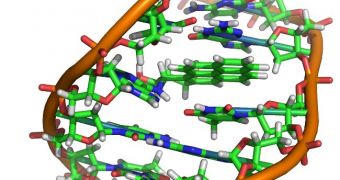The human genetic code is extremely vast and complex, so researchers are deciphering it one study at a time. In one of the latest researches, experts at the Gladstone Institutes determined that certain, fast-mutating areas of the genome are responsible for the development of uniquely-human traits in our species.
In order for human characteristics to be triggered in a developing fetus, for instance, certain stretches of DNA need to be activated. If this does not happen, then the individual will be incomplete.
The groundbreaking investigation was led Gladstone expert Katherine Pollard, PhD. Details of the work were published in the latest issue of the Philosophical Transactions of the Royal Society B.
In addition to shedding more light on our species' evolutionary history, the study may soon offer an explanation for why the activation of identical DNA sequences in two different species can lead to extremely-different results.
In order to be able to conduct this investigation, scientists had to use the latest sequencing and bioinformatics tools, so that they could rapidly browse through the vast volumes of data that are always compiled when studying the human genome, Science Blog reports.
“Advances in DNA sequencing and supercomputing have given us the power to understand evolution at a level of detail that just a few years ago would have been impossible. In this study, we found stretches of DNA that evolved much more quickly than others,” Pollard explains.
“We believe that these fast-evolving stretches were crucial to our human ancestors becoming distinct from our closest primate relatives,” adds the expert, who holds an appointment as a professor of biostatistics and epidemiology at the UCSF Institute for Human Genetics.
The team explains that the areas in question are called human accelerated regions (HAR). Genetic code in these HAR tends to evolve and mutate significantly faster than code inscribed in other portions of the human DNA. The new study was able to identify more than 2,600 HAR to date.
“These results, while preliminary, offer an unprecedented glimpse into how very recent changes to the human genome have modified the genetic programs that control embryonic development to potentially yield different results,” concludes UCSF expert and lead study author, Tony Capra, PhD.

 14 DAY TRIAL //
14 DAY TRIAL //